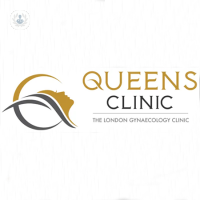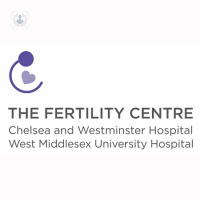What is in vitro fertilisation?
In vitro fertilisation (IVF) is a procedure in which an egg is combined with sperm outside the body, in a laboratory. Once fertilised, the egg is transferred to the woman’s uterus, with the goal of successful pregnancy. It is a common fertility treatment.

Why is in vitro fertilisation performed?
This treatment is an option which can help a woman to become pregnant, in the case of infertility problems, such as:
- Clogged or damaged fallopian tubes
- Advanced maternal age
- Male sterility factor
- Endometriosis
- Unexplained sterility
What happens during in vitro fertilisation?
IVF requires several steps to achieve ultimate success:
- Suppressing the menstrual cycle: with the aid of medication, the regular menstrual cycle is suppressed
- Controlled boost of egg supply: the woman receives a hormonal treatment with medication for approximately 10 days. This is done to stimulate the production of ovules, meaning a greater quantity becomes available. This medication also makes it possible to control the time of ovulation and thus increase the chances that the ovules obtained are suitable for fertilisation.
- Ovarian or follicular puncture: a surgical procedure that consists of extracting the mature ovules from the ovary. The process is carried out by aspiration under anaesthesia and sedation and lasts between 20 and 30 minutes.
- Fertilisation of eggs: the eggs are mixed with the sperm, allowing them to be fertilised
- Embryo transfer: the fertilised embryo are transferred to the womb
Preparing for in vitro fertilisation
The first step when considering any fertility treatment is to visit your GP, who can refer you on to a specialist, or to visit a private fertility specialist or clinic. Once at the clinic, the specialist will speak to you about your fertility history and conduct an examination if necessary.
If IVF is deemed to be the best treatment, you will then be referred for assisted conception. At the clinic or assisted conception unit you and your partner will need to have blood tests, screening tests for sickle cell anaemia and thalassaemia, and your egg count will be investigated.
Aftercare
Once the embryo transfer has been made, you should rest for the remainder of the day.
Generally, you’re advised to wait for 2 weeks before a pregnancy test can be carried out. This time can be stressful and the clinic may offer counselling or support. If the treatment has been successful (and it is important to remember that IVF is not always so), you will be offered regular antenatal care and monitored throughout the pregnancy.
12-29-2015 12-05-2023In vitro fertilisation (IVF)
Miss Kate Maclaran - Obstetrics & gynaecology
Created on: 12-29-2015
Updated on: 12-05-2023
Edited by: Kate Forristal
What is in vitro fertilisation?
In vitro fertilisation (IVF) is a procedure in which an egg is combined with sperm outside the body, in a laboratory. Once fertilised, the egg is transferred to the woman’s uterus, with the goal of successful pregnancy. It is a common fertility treatment.

Why is in vitro fertilisation performed?
This treatment is an option which can help a woman to become pregnant, in the case of infertility problems, such as:
- Clogged or damaged fallopian tubes
- Advanced maternal age
- Male sterility factor
- Endometriosis
- Unexplained sterility
What happens during in vitro fertilisation?
IVF requires several steps to achieve ultimate success:
- Suppressing the menstrual cycle: with the aid of medication, the regular menstrual cycle is suppressed
- Controlled boost of egg supply: the woman receives a hormonal treatment with medication for approximately 10 days. This is done to stimulate the production of ovules, meaning a greater quantity becomes available. This medication also makes it possible to control the time of ovulation and thus increase the chances that the ovules obtained are suitable for fertilisation.
- Ovarian or follicular puncture: a surgical procedure that consists of extracting the mature ovules from the ovary. The process is carried out by aspiration under anaesthesia and sedation and lasts between 20 and 30 minutes.
- Fertilisation of eggs: the eggs are mixed with the sperm, allowing them to be fertilised
- Embryo transfer: the fertilised embryo are transferred to the womb
Preparing for in vitro fertilisation
The first step when considering any fertility treatment is to visit your GP, who can refer you on to a specialist, or to visit a private fertility specialist or clinic. Once at the clinic, the specialist will speak to you about your fertility history and conduct an examination if necessary.
If IVF is deemed to be the best treatment, you will then be referred for assisted conception. At the clinic or assisted conception unit you and your partner will need to have blood tests, screening tests for sickle cell anaemia and thalassaemia, and your egg count will be investigated.
Aftercare
Once the embryo transfer has been made, you should rest for the remainder of the day.
Generally, you’re advised to wait for 2 weeks before a pregnancy test can be carried out. This time can be stressful and the clinic may offer counselling or support. If the treatment has been successful (and it is important to remember that IVF is not always so), you will be offered regular antenatal care and monitored throughout the pregnancy.


Infertility in women - quick facts and top tips for improving fertility
By Mr Stuart Lavery
2024-12-29
Learn the facts you need to know about female fertility, what can cause infertility, and our 4 top tips for improving fertility See more


Understanding failed IVF attempts: Insight from a reproductive medicine specialist
By Dr Anu Chawla
2024-12-29
Navigating the journey of unsuccessful IVF attempts can be emotionally taxing for couples who have eagerly been hoping to start or grow their family. We spoke to Dr Anu Chawla, a renowned senior specialist in reproductive medicine to learn more about why IVF sometimes fails. The leading specialist also shares expert guidance on fertility treatments. See more


Male infertility causes and treatments
By Mr Michael Booker
2024-12-29
Male infertility is the inability of a man to cause pregnancy in a woman. Infertility in men can be caused by numerous factors, including underlying medical conditions or a naturally low sperm count. Mr Michael Booker, a fertility expert, obstetrician and gynaecologist, explains male infertility and how it can be treated. See more


Everything you need to know about assisted conception
By Mr Michael Booker
2024-12-29
Having a baby is not always simple, and some women will require assisted conception (fertility treatment) to be able to conceive. There are several options available and some require handling just the eggs, just the sperm, or both. Mr Michael Booker, a leading obstetrician and gynaecologist, explains what assisted conception is and what the different options available. See more
Experts in In vitro fertilisation (IVF)
-
Mr Adrian Lower
Obstetrics & gynaecologyExpert in:
- Infertility
- Assisted reproductive technology
- Laparoscopy
- Hysteroscopy
- Fibroids
- In vitro fertilisation (IVF)
-
Mr Rajendra Rai
Obstetrics & gynaecologyExpert in:
- Recurrent miscarriage
- Infertility
- In vitro fertilisation (IVF)
- Pregnancy
- Endoscopic surgery
- Uterine malformations
-
Mr Ahmed Ismail
Obstetrics & gynaecologyExpert in:
- Infertility
- In vitro fertilisation (IVF)
- Miscarriage
- Sexually transmitted infections (STIs)
- Gynaecological examination
- Laser vaginal rejuvenation
-
Professor Ying Cheong
Fertility specialistExpert in:
- In vitro fertilisation (IVF)
- Infertility
- Endometriosis
- Recurrent miscarriage
- Polycystic ovary syndrome (PCOS)
-
Mr Julian Norman-Taylor
Fertility specialistExpert in:
- In vitro fertilisation (IVF)
- Laparoscopy
- Fibroids
- Intrauterine insemination (IUI)
- Fertility treatments
- Endometriosis
- See all

Aria Fertility
Aria Fertility
8 Welbeck Way, Marylebone, London W1G 9YL
No existe teléfono en el centro.
By using the telephone number provided by TOP DOCTORS, you automatically agree to let us use your phone number for statistical and commercial purposes. For further information, read our Privacy Policy
Top Doctors

Queens Clinic
Queens Clinic
75 Wimpole Street
No existe teléfono en el centro.
By using the telephone number provided by TOP DOCTORS, you automatically agree to let us use your phone number for statistical and commercial purposes. For further information, read our Privacy Policy
Top Doctors

The Fertility Centre - Fertility treatment and preservation
The Fertility Centre - Fertility treatment and preservation
Chelsea and Westminster Hospital, 369 Fulham Road, London SW10 9NH
No existe teléfono en el centro.
By using the telephone number provided by TOP DOCTORS, you automatically agree to let us use your phone number for statistical and commercial purposes. For further information, read our Privacy Policy
Top Doctors
-
Aria Fertility
8 Welbeck Way, Marylebone, London W1G 9YL, W1G Marylebone LondonExpert in:
- Miscarriage
- Egg and embryo freezing
- Genetic testing
- In vitro fertilisation (IVF)
- Fertility
- Assisted reproductive technology
-
Queens Clinic
75 Wimpole Street, W1G Marylebone LondonExpert in:
- Plastic surgery, reconstructive and aesthetics
- Diagnostics
- Pregnancy
- Fertility
- Obstetrics and Gynaecology
- Sexual health
-
The Fertility Centre - Fertility treatment and preservation
Chelsea and Westminster Hospital, 369 Fulham Road, London SW10 9NH, South LondonExpert in:
- Sperm retrieval
- Egg and embryo freezing
- In vitro fertilisation (IVF)
- Fertility
- ICSI
- Intrauterine insemination (IUI)
- Most viewed diseases, medical tests, and treatments
- Tubal factor infertility
- PGT-A
- Complex endometriosis
- Fertility preservation
- Female infertility
- Ovulatory disorders
- Surrogacy
- PGT-M
- Menopause support
- Pelvic ultrasound








